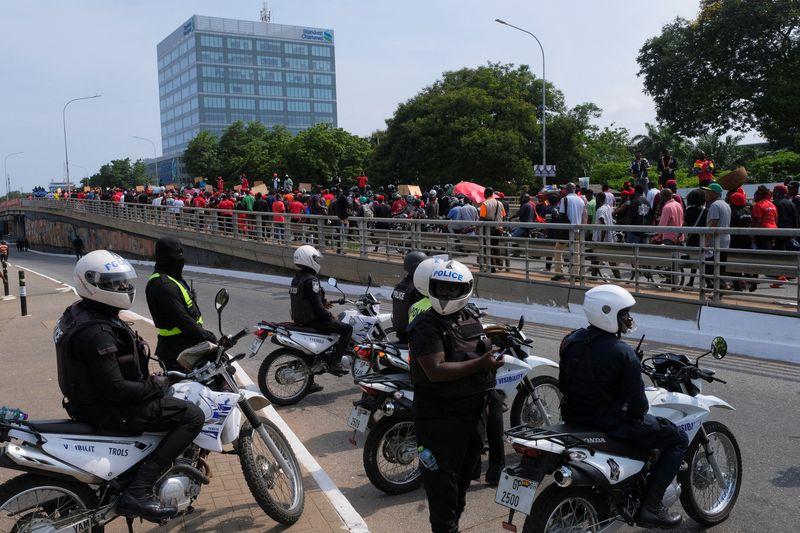By Cooper Inveen and Christian Akorlie
ACCRA (Reuters) - Consumer inflation in Ghana accelerated to 29.8% annually in June from 27.6% in May, official data showed on Wednesday, shattering another record while the West African nation talks to the International Monetary Fund (IMF) for support.
Inflation last hit 29% in January 2004.
June prices were driven higher by items such as fuel and bread, with prices of imported goods rising more than domestically produced ones for the third month in a row, the statistics agency said.
Transport, which includes fuel, registered the highest price growth at 41.6%. Diesel saw 99.7% year-on-year inflation while petrol prices were up 69.4%.
Housing, which includes water, electricity and gas, saw a 38.4% increase and food inflation rose to 30.7%. Bread prices were up 44.5%.
Hundreds took to the streets of Ghana's capital Accra last month to protest against high inflation, weak growth and a deteriorating local currency. Days later, four of Ghana's largest teachers unions said they would strike if their wages weren't increased in tandem with rising prices.
After pledging not to return to the IMF, the government said shortly after the protests that it would seek an economic support package to ward off a "fully blown crisis". A staff mission from the IMF was due to conclude its first visit to Ghana on Wednesday.

A mid-term budget review scheduled for Wednesday was postponed to an unspecified date due to the IMF talks, a finance ministry spokeswoman told Reuters.
The government has blamed its woes on a combination of external forces including COVID-19, the war in Ukraine, and American and Chinese economic downturns.